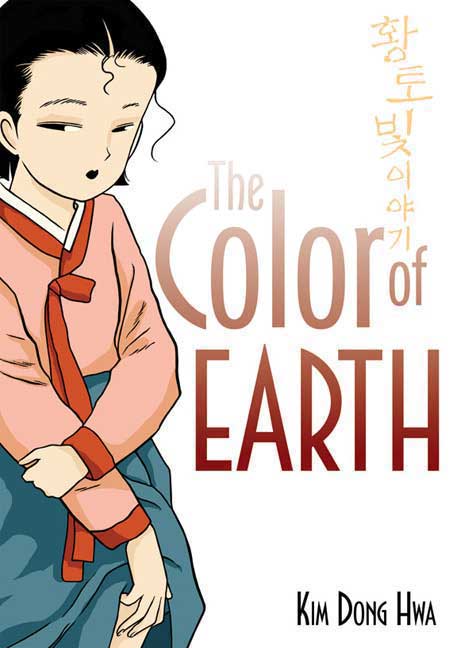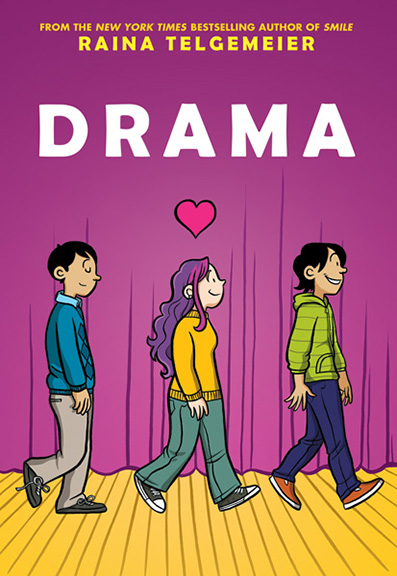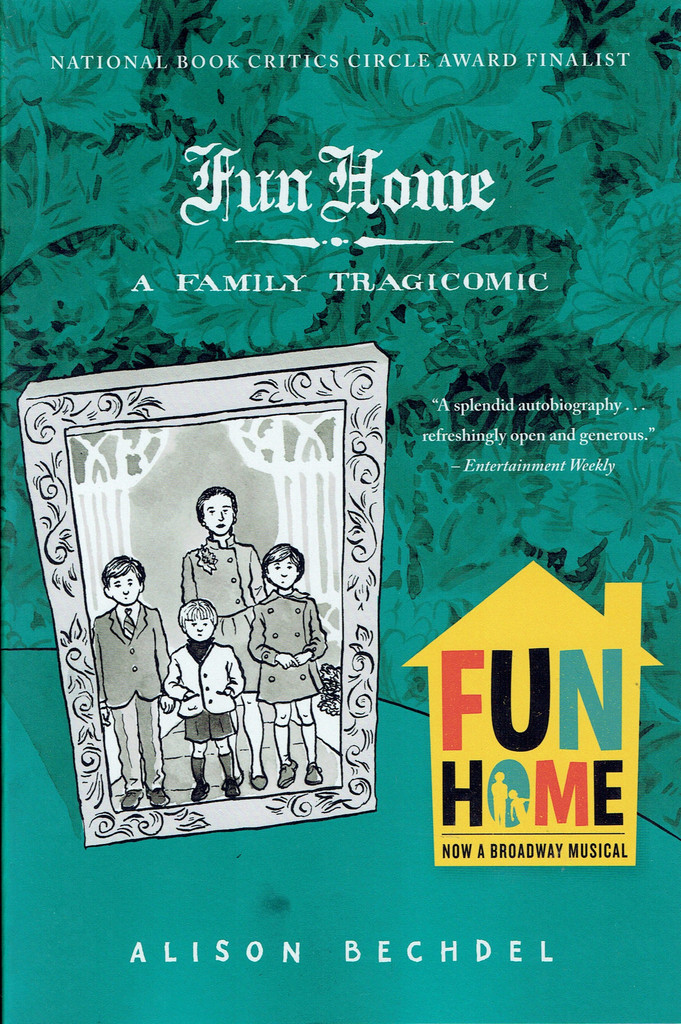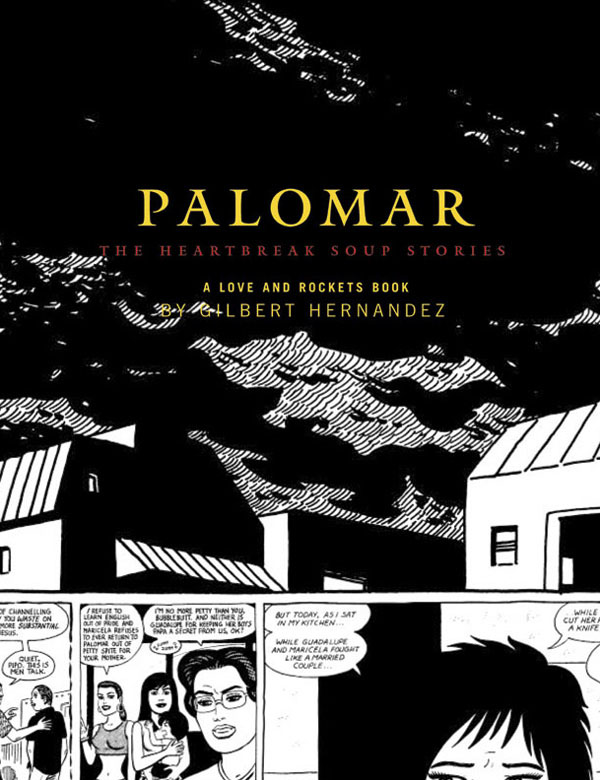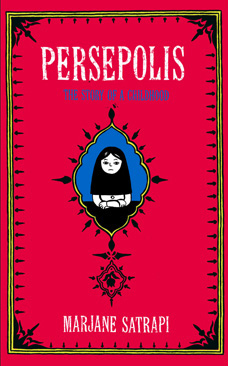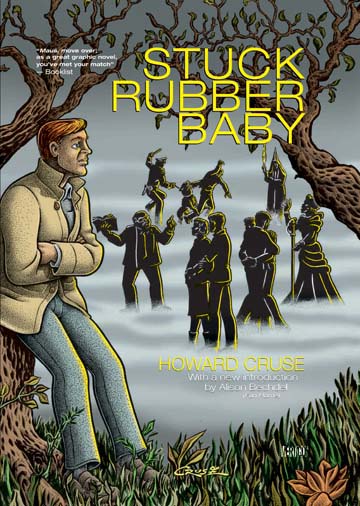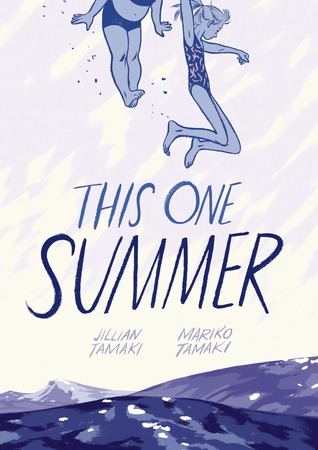Happy Banned Books Week! Comics are uniquely vulnerable to challenges because of their visual nature. Let’s take a look at just a few key cases involving diverse creators and content.
The Color of Earth by Kim Dong Hwa
- Location of key challenge: Various
- Reason challenged: Nudity, sexual content, unsuited to age group
- Diversity content: female sexuality, Korean creator
When the American Library Association’s Office for Intellectual Freedom released their list of the ten most frequently challenged books of 2011, the second-most challenged book on that list was The Color of Earth, a critically-acclaimed Korean manwha, or comic book, series. In spite of numerous positive reviews from Booklist, Publishers Weekly, The School Library Journal, and other outlets that praise the book as “richly literate and imaginative” (Booklist) and “a work of great humanity” (Publishers Weekly), the coming-of-age tale is challenged due to nudity, sexual content, and suitability for age group. More
Drama by Raina Telgemeier
- Location of key challenge: Mount Pleasant, Texas
- Reason challenged: sexually explicit
- Diversity content: LGBTQ characters, woman creator
The ban that landed Raina Telgemeier’s middle-grades graphic novel Drama on ALA’s frequently challenged books list for 2014 was at Chapel Hill Elementary in Mount Pleasant, Texas. The ban was reported in the Texas ACLU’s “Annual Banned Books Report,” but there was no news coverage, so details are thin. What is known is that the book was challenged as “sexually explicit,” most likely for a kiss between two male characters. Drama was removed from the elementary school’s library, but three copies remain in Chapel Hill Independent School District’s combined middle / high school library. It is unknown whether the district actually followed its review process, but it seems unlikely that a review committee would objectively agree that the book is “pervasively vulgar,” one of the stated criteria for removal of library materials in district policy. More
Fun Home by Alison Bechdel
- Location of key challenge: South Carolina; Marshall, Missouri
- Reason challenged: sex / nudity, LGBTQ themes
- Diversity content: LGBTQ characters, LGBTQ woman creator
In 2006, Alison Bechdel’s memoir Fun Home was challenged alongside Craig Thompson’s Blankets in the Marshall, Missouri, public library and was subsequently retained. In 2014, Fun Home faced a greater challenge in South Carolina, where state legislators proposed punitive budget cuts against the College of Charleston because it incorporated the book into a voluntary summer reading program for incoming freshman. After months of debate, the legislature reached an unsatisfactory but highly ironic “compromise”: the funding would be restored, but it would be used for teaching about historic documents, including the Constitution. Fun Home was also one of the books a 20-year-old student and her parents wanted eradicated from the curriculum at Crafton Hills College in California. Administrators responded with a strong statement in support of academic freedom, but suggested that future syllabi for the graphic novel course will include a disclaimer. CBLDF led the National Coalition Against Censorship in protest of this attack on academic freedom, and the district backed away from the proposed disclaimer plan. More
Palomar by Gilbert Hernandez
- Location of key challenge: Rio Rancho, New Mexico
- Reason challenged: sexual content, child pornography
- Diversity content: Latino characters and setting, Chicano creator
When Catrenna Lopez found objectionable material in Gilbert Hernandez’s acclaimed Palomar after her 14-year-old son checked it out of the Rio Rancho High School library, she didn’t simply file a challenge with the school—she took her objections to the local media. Local news outlet KOAT didn’t come close to a fair and accurate report, declaring that “we can’t show you any of the images because they’re too sexual and very graphic” and quoting Lopez’s claims that she found “child pornography pictures and child abuse pictures.” Further, it appeared that the district had ignored their own challenge policies and pulled the book from shelves without review. CBLDF took immediate action to defend the book, taking the lead with frequent partners Kids’ Right to Read Project in sending a letter to protest the allegations against Palomar. By a 5 to 3 vote, the review committee voted to retain the book. Despite the retention, administrators in the district took action to restrict access by imposing a requirement for students under 18 to have parental permission to check out the book. More
Persepolis by Marjane Satrapi
- Location of key challenge: Various
- Reason challenged: Profanity, violent content, religious viewpoint
- Diversity content: Islam, Iranian woman creator
Furor erupted in March 2013 when Chicago Public Schools administrators sent an email to local principals, directing them to remove all copies of Marjane Satrapi’s award-winning autobiographical graphic novel Persepolis over “graphic illustrations and language.” Students immediately mobilized to protest the removal, and CPS backpedaled, clarifying that Persepolis was to be retained in district libraries. It was approved for use in grade 11 classrooms, removed from grade 7 classrooms, and reviewed for use in grade 8–10 classrooms. In early 2015, graduate student Jarrett Dapier obtained and released official CPS emails that revealed that administrators in the system ignored school policy in attempting to remove the book.
In 2014, the book was challenged in Oregon’s Three Rivers School District for violent imagery. It was also challenged in Illinois’ Ball-Chatham school district and the Smithville, Texas, school district over the depiction of Muslim faith. All three challenges failed, but they helped earn Persepolis the number two spot on ALA’s frequently-challenged list. More
Sandman by Neil Gaiman
- Location of key challenge: various
- Reason challenged: Anti-family themes, offensive language, unsuited for age group
- Diversity issues: LGBTQ content
Despite its many accolades, Neil Gaiman’s The Sandman was listed as one of the top banned and challenged graphic novels in 2010 by the American Library Association. The series has been challenged and banned in libraries since its publication. Most often, opposition to the series has arisen when it has been shelved in the young adult section of the library.
In June 2015, The Sandman Volume 2: The Doll’s House was one of four graphic novels that a 20-year-old college student and her parents said should be “eradicated from the system” at Crafton Hills College in Yucaipa, California. Administrators responded with a strong statement in support of the professor but suggested requiring a disclaimer on the course syllabus. CBLDF led advocates in protest of this attack on academic freedom, and the district backed away from the proposed disclaimer plan. More
Stuck Rubber Baby by Howard Cruse
- Location of key challenge: Montgomery County Memorial Library System, Texas
- Reason challenged: Depiction of homosexuality
- Diversity content: LGBTQ content, LGBTQ creator
In 2005, Howard Cruse’s groundbreaking graphic novel Stuck Rubber Baby was challenged in the Montgomery County Memorial Library System along with 15 other young adult books with gay-positive themes by a group calling themselves the Library Patrons of Texas. The graphic novel tells the coming of age story of a young man who grows up queer in the South during the 1960s. The book explores issues of homophobia, racism, and gay identity in a time period when all of those concerns were undergoing profound and revolutionary changes. Stuck Rubber Baby was honored with nominations for the American Library Association’s Lesbian and Gay Book Award (now the Stonewall Book Award) and for the Lambda Literary award. It won Best Graphic Novel at the United Kingdom Comic Art Awards and the 2002 French Prix de la critique. The book was ultimately retained in the Montgomery County system, but it was reclassified from young adult to adult. More
This One Summer by Jillian Tamaki and Mariko Tamaki
- Location of key challenge: Undisclosed
- Reason challenged: Sexual content, unsuited to age group
- Diversity content: female sexuality, Japanese-Canadian women creators
The announcement of the 2014 Caldecott Medal honorees had many people rushing to pick up the books for their library and classroom collections. Graphic novel This One Summer by Jillian Tamaki and Mariko Tamaki broke boundaries by becoming the first graphic novel to earn the Caldecott honor. Unfortunately, the award yielded an unforeseen negative outcome: Since the announcement of the Caldecott honor, CBLDF has been confidentially involved in defending multiple challenges to This One Summer in various communities.
This One Summer is intended for ages 12 and up, which makes it eligible for the Caldecott, but books for that age group rarely receive the award. Problems arise when people order a book based on its award pedigree rather than familiarity with the content of the book. A few people, believing the book is aimed at younger readers because it is a Caldecott Honor Book, have been shocked to find that the award-winning graphic novel is meant for audiences age 12 and up. Rather than acknowledging their responsibility for knowing the material, some of these individuals instead attacked the book. More
—
If you are hosting an event or Banned Books Week display, let us know about it! Register your event with Banned Books Week at http://www.bannedbooksweek.org/events and send an email to betsy.gomez@cbldf.org.
As you’re planning your events or developing your library and classroom curricula, be sure to check out these other valuable CBLDF resources:
- CBLDF Banned Books Week Handbook
- Raising A Reader: How Comics & Graphic Novels Can Help Your Kids Love to Read!
- Using Graphic Novels in Education
- Adding Graphic Novels to Your Library or Classroom Collection
- CBLDF Discussion Guides
- CBLDF Banned Comics Case Studies
- Comic Book Club Handbook
- Manga Book Club Handbook
- CBLDF Presents: Manga
- Working With Libraries: A Handbook For Comics Creators
- CBLDF Comics Connector
- Posters, shelf talkers, and more…
CBLDF is an official sponsor of Banned Books Week. Banned Books Week is also sponsored by American Booksellers for Free Expression, American Library Association, Association of American Publishers, Association of American University Presses, The Authors Guild, Dramatists Legal Defense Fund, Freedom to Read Foundation, National Council for Teachers of English, and People for the American Way Foundation. Contributors include American Society of Journalists and Authors, National Coalition Against Censorship, PEN America, and Project Censored. Banned Books Week is endorsed by the Center for the Book at the Library of Congress.
CBLDF’s education program is made possible with the support of the Gaiman Foundation and CBLDF’s Corporate Members — ABRAMS, Black Phoenix Alchemy Lab, BOOM! Studios, comiXology, DCBS, Diamond Comic Distributors, Dark Horse Comics, DC Entertainment, IDW Publishing, Image Comics, Half Price Books, Oni Press, Penguin Random House, ReedPop, TFAW.com, Scholastic, SPX, Valiant, the Will & Ann Eisner Family Foundation — and members like you. Thank you!
Help support CBLDF’s important First Amendment work by visiting the Rewards Zone, making a donation, or becoming a member of CBLDF!
